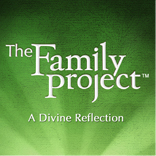Marriage is important to the Virginia domestic relations code. It is also
important to a strong Virginia. Thursday night’s after-hours decision in
the Eastern District of Virginia on the constitutionality of Virginia’s State
Marriage Amendment reflects weak jurisprudence that does not support
sustainable public policy.
Virginians
defined marriage by state referendum in 2006 with a law that is now contained
in Article 1, Section 15 A of the Virginia Constitution. Virginia is one
of thirty states that have moved to strengthen marriage in this
manner. The recent Supreme Court of the United States opinion
in U.S. v. Windsor, while striking the federal definition of marriage,
expressly held that states have the right to regulate family law.
The
Bostic decision last night stated that the federal constitution
required its ruling to expand marriage without an understanding of the
court's own errant legal reasoning. A Virginia Delegate noted this
mistake right away, as the Virginian-Pilot reported. “The ruling
attributed the ‘all men created equal’ credo to the U.S. Constitution when, in
fact, that language is in the Declaration of Independence,” noting that the
judge’s “inability to tell the difference between the two foundational texts
illustrates incompetence.” Read the full article here. The
decision also illustrates a lack of understanding of family law public
policy.
Marriage
laws carry great significance for the future of the Commonwealth of
Virginia. According to a 2011 Pew Research Center Study, in 1976 72% of
adults were married, while that number dramatically dropped to 51% in
2010. In the midst of a collapsing marriage culture where marriage is
clearly declining in popularity, the traditional power of states to define
domestic relations and strengthen marriage culture is undermined and injured by
recent rulings that lack solid legal reasoning supportive of state family
law.
Because family law extends into almost every other area of law, rulings
which expand and dilute marriage will further weaken the substance of family
law policy. Virginia law on marriage supports the ability of husbands and wives
to contribute to the common good through the creation and perpetuation of the
family, while simultaneously not working to prohibit same-sex couples from
entering into ordinary contractual relationships.
Virginia’s law on marriage also recognizes that changing marriage creates
inequality, as redefining marriage institutionalizes less diverse structures,
producing unequal opportunities for children. Strengthening marriage,
however, champions children's interests, as fathers and mothers together
provide the best structure for delivering children into adulthood. In
fact, the Virginia Supreme Court of L.F. v. Breit v. Mason, Record Nos.
120158, 120159, Jan. 10, 2013 determined that a child has a protected liberty
interest in knowing and having a relationship with both his father and his
mother. These goals promote and achieve the common good.
The “right to
marry” was first found to be fundamentally protected by the United States
Constitution in Loving v. Virginia. The “right to marry a person of the
same sex,” however, has not been afforded constitutional protection, even with Windsor
and Perry.
The political
pressure, however, to which recent decisions to expand and dilute marriage have
succumbed, is formidable. The impact of the rhetoric used, rather than
solid legal rationale based on the rule of law, now appears to be driving
marriage regulation. This is most dangerous for sustainable public policy.
Cases that promote
marriage expansion present two alternate views of marriage - the “conjugal”
view and the “consent-based” or revised view of marriage. Under the
conjugal view, the institution of marriage was created for the purpose of
channeling heterosexual intercourse into a structure that supports child
rearing. Indeed, the link between marriage and procreation is a hallmark of the
conjugal view, inextricably linking the relationship to procreation
normatively, a view which fundamentally represents society’s interest in the
ordering of adult relationships for the benefit of children and therefore
society as a whole.
Governments support
married men and women as a public structure for their unique service of
creating and raising children – the future public – as necessary to the common
good. This view holds romance as the spark that begins lifetime
commitment and works to perpetuate society. Consequently children and
family are a prominent concern in conjugal marriage-based family law and
policy.
The consent-based
or revisionist view of marriage defines marriage as the solemnization of mutual
commitment – marked by strong emotional attachment and sexual attraction –
between two persons. Since procreation is not central to this view of marriage,
the sex of partners is irrelevant to the definition. This notion of
marriage centers on adult autonomy and commitment. In this view marriage
is an emotional bond where partners seek emotional fulfillment and remain as
long as they find that fulfillment. This view of marriage is ultimately
subject to one’s own desires. It holds romance as perpetuating the
self-focused version of heterosexual marriage that has led to its decline,
something that family law divorce lawyers generally understand well. The Supreme
Court explicitly contrasted the conjugal view with the “new insight” that
allows “same-sex marriage . . . for couples who wish to define themselves by
their commitment to each other.” (U.S. v. Windsor). These two
views of marriage are in direct contrast – one focusing on children, the other
focusing on adults.
States like
Virginia that have fostered conjugal marriage are feeling the effects of
political pressures, rather than being encouraged to make sustainable public
policy. Until the ruling of February 13, 2014, state public policy
indicated that Virginia law remained deeply committed to children and to
married men and women.
If Bostic
stands, it represents a severe ideological shift in family law. The
changes to family law coming as a result of more widespread recognition of
same-sex marriages are dramatically changing what family law is in terms of
sustainable state policy. Changes in marriage bring changes to adoption
law, and to parentage, by officially denying a child’s need for both a mother
and a father. It creates unequal opportunities for children adopted into
homes lacking mothers or fathers. It affects kinship and family
ties. Revising marriage into a single-sex option promotes families that
would intentionally deprive children of the diversity of a man and a woman,
creating inequality for children. Conjugal marriage conversely guarantees
diversity and equality to children. George Mason Law Professor Helen
Alvaré contends in her article published by Stanford’s Law and Policy Review
entitled The Turn Toward the Self in the Law of Marriage & Family:
Same-Sex Marriage & Its Predecessors, that among other concerns over
marriage revision, artificial reproductive technology (ART) will be greatly
relied upon to build families for same-sex parents. Children will live
with the effects of those decisions. (See also Why I Need to Find My
Father, W. Daily Press (Eng.), Jan. 23, 2004, at 8 (citing “feelings of
revulsion at the clinical method by which we were produced; a sense of loss and
grief for deliberately severed relationships with unknown biological kinfolk; a
fear of accidental incest; anger and frustration at the lack of respect shown
for our missing genetic origins....”). As same-sex marriages become more
prevalent, demand for ART will naturally rise, which will bring with it a host
of parentage and custody implications. The most profound effects of
marriage revision may lie in the impact upon family law effectuated by the acceptance
of the underlying ideology. This ideological shift centers on the
conception of the meaning of marriage. Both revisionists and conjugal
marriage supporters value love, commitment, and rights as well as procreation
in marriage; these values are not mutually exclusive. Thus, it is not a matter
of substituting these aspects completely, but rather of substituting them as
the primary basis and justification for civil marriage. Since family law
policies reflect the ideologies they are built upon, changes to marriage toward
an adult-centered approach will undermine sustainable family public
policy.
Other implications arise from the Bostic ruling. Requirements for
entry into marriage (such as of minimum age and unrelated by consanguinity or
affinity) are no longer unshakable. Moral repulsion of incest is
not a defense to marriage revision; normalization of sex with children is
advanced by consent-based language. Other elements of the definition of
marriage are today more vulnerable because of Bostic and rulings like
it.
Conjugal marriage carries an implicit child-centered approach; adults
sacrificing their own autonomy for their children’s best interests.
Adult-centered approaches, such as the revisionist or consent-based
understanding of marriage view marriage as more of a self-seeking than a
self-giving institution, and thus steer marriage and families in a direction
precisely opposite that which is needed to reconnect these institutions to
children and to the larger society. Practically, the effects of
exchanging a best interest of the child mindset for an adults-oriented approach
would ripple through parentage determinations, child custody determinations,
and child support, areas of family law that have traditionally been dominated
by the best interest of the child standard. Professor Alvaré makes this point
clearly:
[M]arriage is not a tool for adults to feel better about being different, but
an important element to express state interests in the well-being of children.
Parents' interests are not unimportant; marital happiness is a terribly
important component of adult happiness. Yet in the eyes and on the scales of
the law, the state is more vigorously protective of children's interests and looks
to strong marital unions as the way of assuring these. This is why the state
can interfere with parents in cases of child abuse, why divorcing parties may
never have the last word about child support or custody, why adoption
procedures attend so much more closely to the interests of the child than even
the deepest longings of would-be parents, and why recent federal and state
lawmaking efforts about marriage, divorce, and welfare all have children as
their rallying cry. (Helen M. Alvaré, The Turn Toward the Self in the Law of
Marriage & Family: Same-Sex Marriage & Its Predecessors, 16 Stan. L. & Pol'y Rev. 135, 187
(2005)).
The ideological shift from conjugal marriage to an expanded view of marriage to
protect same-sex families will change family law, damaging sustainable public
policy. In 2006 Virginia formalized its determination that conjugal
marriage was the best family policy for the state, largely because it
transforms self-centered, single adults into connected mothers and fathers who
together overcome obstacles in life to build a natural family across multiple
generations.











